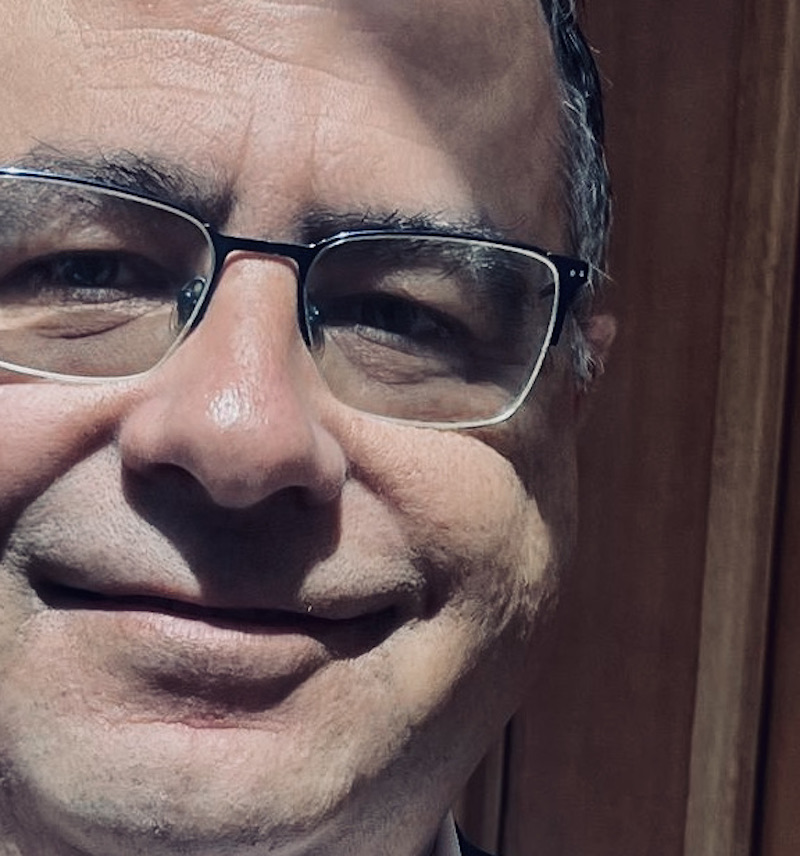
Marwan Hanania was born and raised in Amman, Jordan. He received his B.A. with Honors in Government from Cornell, M.A. in Regional Studies: The Middle East from Harvard, and M.A. and Ph.D. in History from Stanford. Marwan currently teaches at Santa Clara University. He is teaching “The Gun and the Olive Branch: Times of War and Peace in Israel and Palestine” with us this fall.
Many people have set views when it comes to Israel and Palestine. What’s your approach to teaching a subject that can be so contentious and emotional?
First, we should understand that there is no purely objective point of view relating to this conflict. Even people who are coming at it from what they think of as a neutral position most likely aren't. The country you're raised in, the prevalent culture you’re surrounded by and the news sources you are exposed to will undoubtedly impact some of your understanding of it.
Second, it’s important to recognize that arriving at the truth as best as we can does not mean landing in the middle of two competing narratives — that the truth is right in the center, which is something I learned during my PhD studies. I'll give you an example. Under the justice system, the plaintiff says something and the defendant says something else. Does that mean that the truth is by necessity in the middle? No, it could be on either side or somewhere on the spectrum.
To understand the conflict better — to look at it in a critical way — you have to understand the background. One of the things I do in my course is use a combination of primary and secondary sources to show students actual documents, interviews, videos, things like that. Some of those sources are so strong and unassailable that it’s hard to refute.
I also go about things in an interdisciplinary way. For example, some Palestinian archives were destroyed long ago. In addition, some Palestinians were farmers who did not keep memoirs. That’s where oral history, not just archival history, becomes important, although we do have written material from many Palestinians and Israelis. I also help students understand that just because something is in an archive written by, say, an intelligence officer, does not mean it’s necessarily stronger or more valuable than the memory of a folk woman in a village or refugee camp.
Where does your course start on the timeline? You could go as far back as pre-modern times.
I have a short section in the beginning about some of the pre-modern past, a little bit about the history, the heritage, the holy sites, but that’s really it. I think the pre-modern past is kind of weaponized and used in a way to deny the legitimacy of one side or the other. People try to draw a straight line from pre-modern times to now, and that is not how history works or how modern identities develop. Pre-modern is fun to explore intellectually, but it’s not productive or helpful. It’s an exercise in hypotheticals.
What do you find people misunderstand most about the conflict?
I would say the most misunderstood aspect is the role of religion. Many people think the conflict is over religion, which it is not. It is fundamentally an issue about two national groups competing for territory with religion acting as an exacerbating factor. I also hear a lot of misunderstanding about why the Arab side rejected the Partition Plan of 1947, without knowing the context in terms of demographics and land ownership. That comes up a lot. I would say a third one is not understanding the distinction between different groups, like lumping together Hezbollah and Hamas, as well as very different groups like ISIS and Al Qaeda.
You were born and raised in Amman. How has your upbringing influenced your perspective?
My father's family is Palestinian and my mother's family is Iraqi. My father’s family is Greek Orthodox Christian and my mother’s is Catholic. So, of course, all of that influenced me. What I read, what I saw, what I heard — everything surrounding me growing up is part of who I am. Coming to the States for school didn’t change my perspective of the conflict, but it did deepen my understanding of it. As I matured and learned more, I was able to contextualize it within the framework of history and the contours of other conflicts that are both similar and different.
I imagine you’ve traveled all over the region.
My research has been primarily about Jordan and Amman, which is my home country and a place of relative harmony. I haven’t been to Israel and Palestine in a long time. The last time I went was in 2000. As a young man in the 1990s, during that short period of peace, I visited regularly. But with the Second Intifada, getting visas to Israel became more difficult. So, for many years, I wasn’t able to visit. In recent years, I could have traveled there, but it’s been so violent that I haven’t had an interest in going. Hopefully when things improve. But right now, things look quite bad.
What do you hope OLLI members take away from your course?
It's a very challenging subject, but I'm going to try as much as possible to humanize it in a fair way to everybody and in a manner that deepens everyone’s understanding of the key individuals, geography, demographics and events that have gotten us to where we are today.